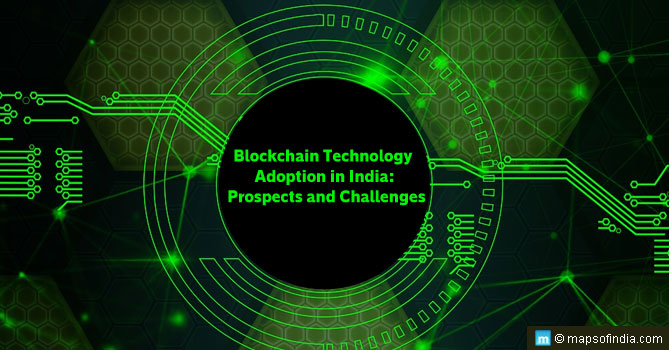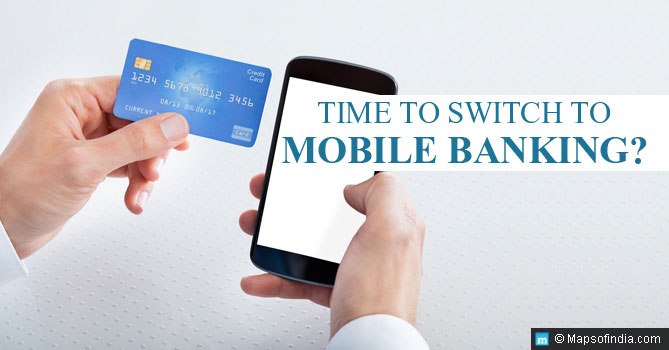Blockchain technology is the new-age, disruptive digital technology that is bringing paradigm shift in business models across sectors world over. This history-altering technology has started gaining foothold in India too. Reports say more mainstream industries (including banking, retail, healthcare, logistics, and finance) will adopt blockchain technology in 2019. Gartner research and advisory firm predicts that the blockchain’s business value will surpass US$3 trillion by 2030.
Blockchain Technology Adoption in India
- Union government’s policy think-tank, NITI Aayog, in association with the state governments of Telangana and Goa, hosted International Blockchain Congress 2018, the biggest blockchain conference in Asia. This will help in adoption of blockchain technology in India.
- To drive blockchain technology adoption across industries Mumbai-headquartered Tata Consultancy Services (TCS) has collaborated with Microsoft and R3 enterprise blockchain software firm.
- A survey conducted by London-based blockchain consulting firm, Dappros, has found out that India has 19,627 blockchain developers, second only to the United States (having 44,979 blockchain developers).
- World Intellectual Property Organization’s (WIPO) data shows that India ranks 6th in the total number of patent approvals (67 in total) in 2018.
Prospects
A PwC report based on a global survey said that India has the potential of becoming a leader in blockchain technology adoption, provided there is right amount of industry and government participation.
Let’s check the different prospects of blockchain technology in India:
- Reserve Bank of India set up a unit in August 2018 to research/supervise new emerging technologies for studying the blockchain application in creating a decentralized as well as cashless banking system.
- In February 2019, while placing the interim budget, Finance minister Arun Jaitley said: “The government will explore the use of blockchain technology proactively for ushering in the digital economy.”
- NITI Aayog is exploring opportunities for deploying blockchain technology in drug and fertilizer industries.
- While government of Karnataka has shown interest in exploring blockchain technology, Telangana government has announced using this advanced and secured technology to digitize land records as well as upgrade other data. Many other Indian states such as Andhra Pradesh, Maharashtra, and Kerala have started pushing the blockchain agenda aggressively.
- One of the areas where blockchain or DLT technology shows immense potential is in voting, especially by ushering in transparency and security in voting.
Challenges
Blockchain technology looks promising and there is immense scope of its adoption in India. However, some challenges persist:
- There is lack of regulation and compliance. Once the Indian government implements the clearly defined regulation on blockchain and Distributed Ledger Technology, their adoption will become faster.
- Testing and adoption of blockchain applications are still restricted to cryptocurrency only. For successful PoC (Proof of Concept) execution at large scale, the banks need to hire blockchain experts. Cost of hiring such experts or data scientists are much higher than software developers, making its adoption costly.
- In many public blockchain-based applications, it is still not clear who incurs the cost of network maintenance as well as validation of transactions.
- Indian tax and RBI authorities don’t have a favorable opinion about cryptocurrencies and ICOs (Initial Coin Offerings). Until and unless this hate affair of Indian authorities end with cryptocurrencies and ICOs, startup initiated blockchain projects can’t be executed.
- Lack of robust regulatory framework in India is restricting creation of enough opportunity for blockchain developers. A study has found that 80% of the sample survey is likely to move abroad for better opportunities.
- Therefore, India is likely to face a crunch in blockchain minds.
Not many vendors in the supply chain are ready to adopt the new technology because of the trust issues and lack of awareness about the technology. Therefore, more digitization and awareness is required for accelerated adoption.
Conclusion
Blockchain technology can solve major problems plaguing Indian economy such as corruption, intervention of middlemen, breach of data, financial ledger tampering, and many more. In fact, there are over 6 million engineers in India, who can deliver a solid throughput. In the global IT services industry, India holds 55% market share. The current prime minister of India Narendra Modi has also said: “India’s youth can lead a revolutionary movement using Artificial Intelligence and blockchain technologies with value addition.” All these facts indicate that all factors are working in unison to pave way for faster adoption of the technology in India.






